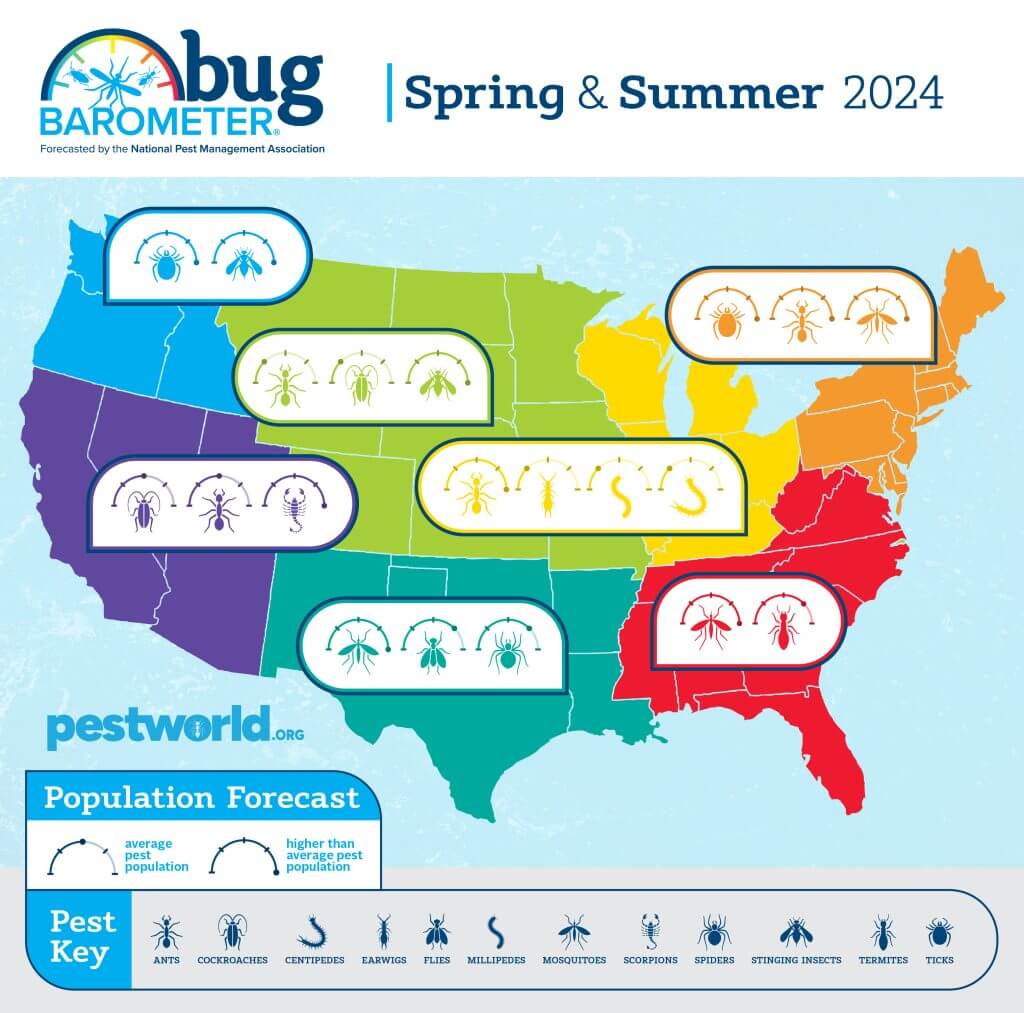This April, MGK is joining others in the professional pest control industry to celebrate National Pest Management Month (NPMM), an annual observance recognized by the National Pest Management Association (NPMA) and Chase’s Calendar of Events. NPMM recognizes the role pest control professionals play in protecting public health, food and property from threats posed by pests.
“Pest professionals and the pest control industry play a critical role in our communities, protecting families and businesses from pest-borne health and property threats,” said Steve Gullickson, president of MGK. “MGK has a proud tradition of partnering with PMPs to support their unique needs, helping them improve their performance with their customers and building their businesses. Pest control professionals are always at the ready to tackle any pest infestation, and we’re pleased to celebrate their role as protectors of public health this month, and all year-round.”
Get Your Region’s Pest Forecast
As snow melts and flowers bloom, pests will soon be out in full force, causing homeowners to reach out to their local pest control professional. NPMA’s Spring & Summer 2024 Bug Barometer highlights expected insect pressure in your service area this coming season.

Northeast & New England
An unseasonably warm start to spring in the Northeast could allow tick and ant populations to become active earlier in the year. Mosquito populations could also thrive in the region if above average rainfall occurs as predicted.
Southeast
If the Southeast experiences a wetter spring as predicted, expect to see mosquito populations flourish in the region as increased rainfall combined with warm temperatures will create ideal conditions for these biting pests. A hot and wet start to the spring months would also lead to notable termite activity in this region.
Great Lakes, Ohio Valley & Midwest
The lack of rainfall could potentially delay peak season for pests like earwigs, millipedes and centipedes that typically thrive in the wet summer months. However, warmer than normal conditions in the spring paired with below-average precipitation could increase ant activity as they move inside in search of moisture.
North Central U.S.
Warm, but dry conditions in spring may translate to a slow start for cockroaches and ants in the region. However, warm temperatures throughout the spring and summer months will mean active stinging insect populations until temperatures start to cool in the fall.
South Central U.S.
A warm and rainy spring could create the perfect standing-water conditions to give mosquitoes a jumpstart on the season. Increased rainfall throughout the warmer months may also lead to ideal conditions for flies and spiders to thrive.
Southwest
With forecasts in the Southwest calling for below-average rainfall and warm temperatures this spring, activity for moisture-loving pests such as ants and cockroaches could be delayed until the summer rain arrives. However, the dry and warm conditions are ideal for an increase in scorpion activity throughout the season.
Northwest
Warm temperatures and early season rainfall will likely support an increase in tick activity. A warm and rainy summer may also lead to an increase in stinging insect activity.
Learn more:
- Get tips for building your business with MGK resources and protocols.
- See MGK’s entire line of products created specifically for pest control professionals.
- Or find products for specific pests: Ants | Cockroaches | Mosquitoes | Ticks

